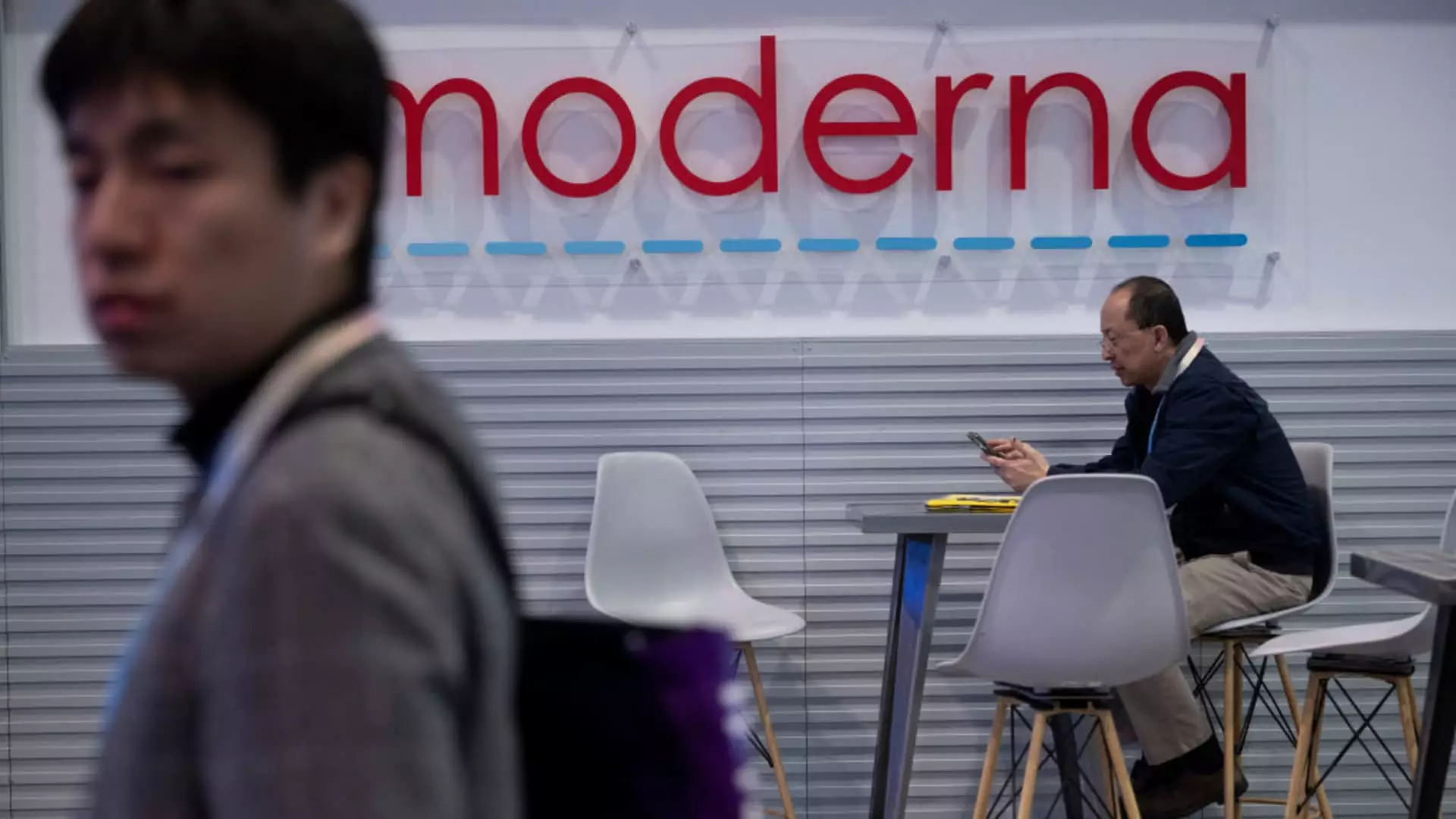Following a challenging period for biotech firms, Moderna Inc. has made significant adjustments to its future sales projections, reflecting both market realities and strategic pivots. The company, well-known for its mRNA-based vaccines including those for COVID-19 and respiratory syncytial virus (RSV), has revised its 2025 revenue expectations downward by nearly $1 billion. This article delves into the reasons behind this adjustment and explores what it means for the company’s future trajectory.
In a recent announcement, Moderna disclosed that it anticipates revenue in the range of $1.5 billion to $2.5 billion for 2025, a stark contrast to its earlier forecast of $2.5 billion to $3.5 billion made in September. This forecast is primarily anchored in the company’s expectation that most sales will be concentrated in the latter half of the year, stemming from its COVID-19 vaccine and the newly introduced RSV vaccine. This revenue adjustment underscored a broader trend of declining consumer demand for COVID vaccines, which has beset many biotech companies since the pandemic’s peak.
Moderna’s Chief Financial Officer, Jamey Mock, indicated that company officials are preparing for several headwinds as they look toward 2025. These include an intensifying competitive landscape within the COVID-19 vaccine market and a marked decrease in vaccination rates among the U.S. population. Fortunately for Moderna, the company also plans to significantly lower its cash costs by $1 billion in 2025 as part of its cost-saving measures, which casts a glimmer of hope amid the backdrop of challenges.
One of the key factors contributing to Moderna’s cautious outlook is the increased competition in the COVID-19 vaccine market. With Moderna’s share of the U.S. retail market declining from 48% in 2023 to approximately 40% at the end of 2024, the fight for market share has intensified. New entrants, particularly those co-commercialized by larger pharmaceutical companies like Sanofi and Novavax, heighten the challenge for Moderna to maintain its existing consumer base.
Moreover, the decrease in vaccination rates—down roughly 7% in the fall of 2024—suggests a waning enthusiasm for COVID-19 vaccines, which may continue to put pressure on sales. As the market becomes gradually saturated with vaccine options, Moderna must not only defend its territory but also innovate to attract consumers back into vaccination programs.
In response to market uncertainties, Moderna has put cost management and diversification at the forefront of its strategy. The company is looking to balance its budget by reducing operational expenses significantly over the next few years. Aiming to enhance its portfolio, Moderna plans to seek approval for ten new products in the coming three years. This proactive approach aims to include a combination vaccine for both Covid and influenza, among other candidates expected to gain approval in 2025.
The emphasis on broadening its product lineup reflects a notable shift in Moderna’s strategy, moving beyond solely focusing on COVID-19 vaccines as the core of its business. As it ventures into combination shots and explores therapeutic applications, Moderna seeks to leverage its mRNA platform to create a more resilient and diverse array of products.
As Moderna navigates through its current predicament, the company’s ambition to thrive in a rapidly evolving landscape is evident. The decline of its COVID-19 vaccine sales, having previously generated more than $6 billion in revenue as recently as 2023, showcases a sharp drop that it must contend with continuously. However, the successful rollout of its RSV vaccine may present an avenue for recovery that could offset some losses from its flagship product.
Future prospects remain intertwined with external factors, including regulatory approvals, consumer behavior, and competitive dynamics. The upcoming JPMorgan Healthcare Conference, where Moderna is expected to present, could serve as a critical platform for discussing its strategic direction and garnering investor confidence amidst a challenging landscape.
While Moderna’s revised sales guidance reveals the stark realities facing the biotech industry post-pandemic, its strategic steps toward cost management and portfolio diversification signal a company that is preparing to adapt and compete in this new era. The road ahead may be fraught with challenges, but it also promises opportunities for innovation and growth in the evolving healthcare landscape.

